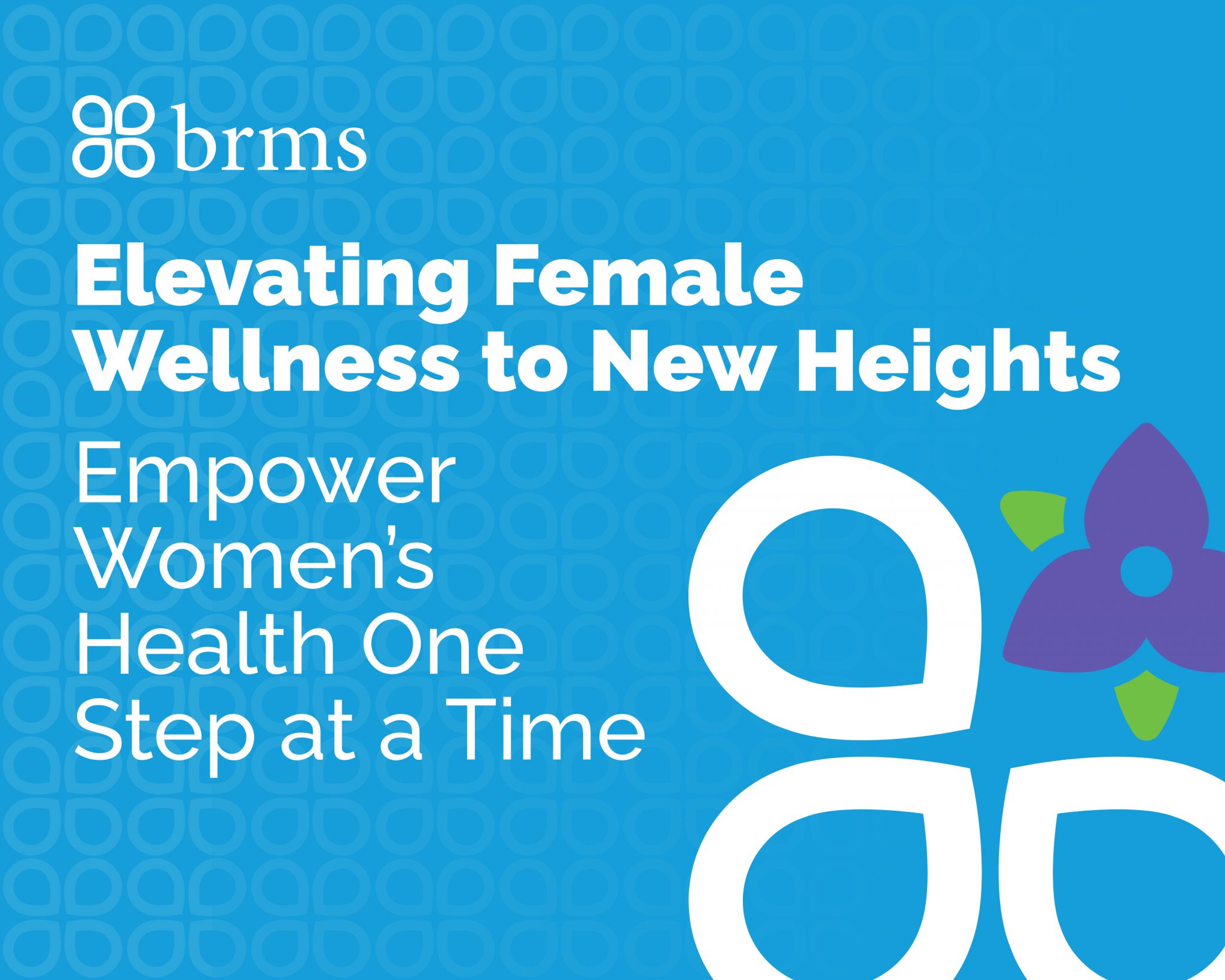

Despite significant strides that are being made in healthcare, the unique health needs of women are often overlooked or misunderstood. From reproductive health to mental well-being, women face a myriad of challenges that demand attention and proactive care. BRMS wants to shed light on the importance of women’s health by equipping you with practical tips and helpful information.
Mental health issues, including depression and anxiety, disproportionately affect women, with nearly one in five experiencing a mental health disorder each year. Keep that and the rest of these numbers and tips in mind to help you and/or the women in your life keep living healthy and happy.
Women’s Health By the Numbers
- Women with endometriosis have about 3x higher healthcare costs on average*
- Through increased healthcare spending and productivity loss, menopause costs the global economy an estimated $810 billion annually*
- Almost half (47%) of the women’s health burden reflects conditions that affect women disproportionately, such as depression and auto-immune diseases**
- Since 2000, women in the United States have reported total adverse events from approved medicines 52 percent more frequently than men**
- 1 in 4 women in the U.S. die from heart disease‡
- 42,000 women in the U.S. die from breast cancer each year†
- Only 11% of women were tested for any type of cancer in the past 12 months†
8 Essential Steps for Improving Women’s Health
- Prioritize preventive care: Regular screenings, such as mammograms and Pap smears, can detect potential health issues early, enhancing treatment.
- Embrace a balanced, calcium-rich diet: Calcium-rich foods like dairy products and leafy greens reduce the risk of osteoporosis, and help balance your hormones during menopause, reducing symptoms.
- Stay active: Incorporate regular exercise into your routine to boost cardiovascular health, maintain a healthy weight, and reduce the risk of chronic diseases.
- Stay informed: Know about your reproductive health options, including contraception, fertility awareness methods, and prenatal care.
- Cultivate strong support networks: Surround yourself with supportive friends, family members, and healthcare professionals who prioritize your well-being.
- Get adequate sleep: Aim for seven to eight hours of quality sleep each night.
- Advocate for yourself: Take an active role in your healthcare journey by asking questions, seeking second opinions, and advocating for personalized treatment plans that address your needs.
- Keep track of menopause symptoms: Stay in touch with your physician for guidance and treatment during the menopause process, which typically happens between the ages of 45 and 55.
Women’s health is our health, and with this knowledge, let’s all come together to make our future one that takes the health of each and every person into account. By embracing proactive measures, staying informed, and advocating for equitable healthcare access, we can foster a future where every woman thrives in mind, body, and spirit. Together, let’s continue to strive for an equitable world where women’s health is a priority for all.
Additional Sources
* https://www.weforum.org/agenda/2024/02/womens-health-gap-healthcare/
** https://www.mckinsey.com/industries/life-sciences/our-insights/closing-thedata-gaps-in-womens-health#/
‡ https://statusofwomendata.org/explore-the-data/health-well-being/#section-3
† https://news.gallup.com/poll/547712/global-study-issues-wake-call-womenhealth.aspx
